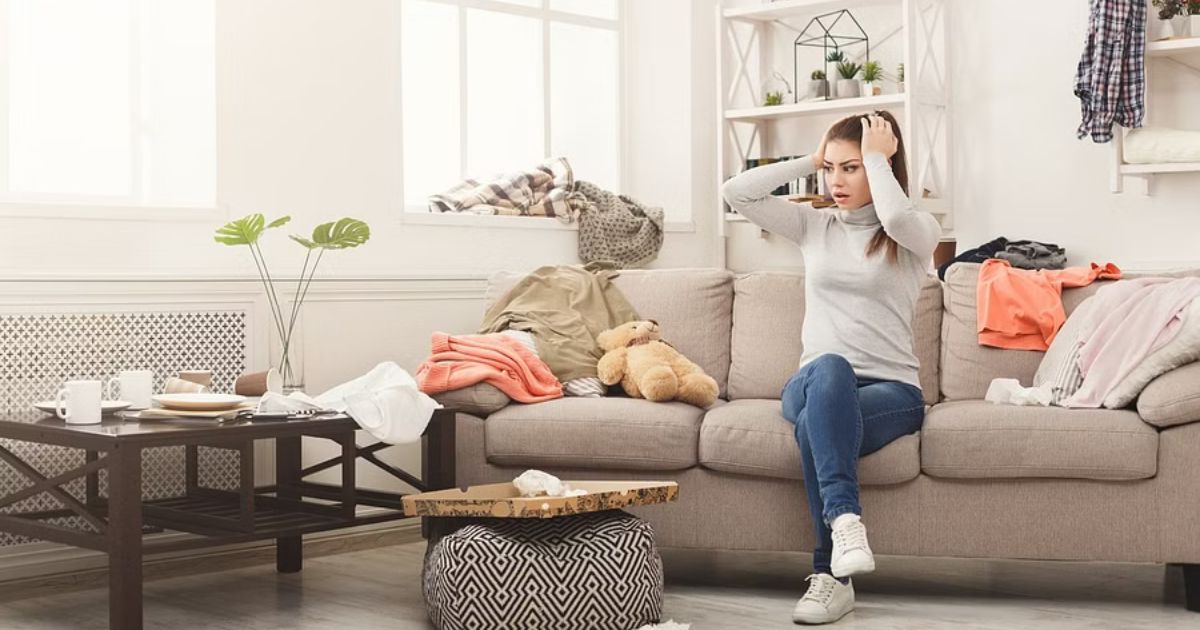Do you ever find yourself feeling overwhelmed when you step into your home, only to be greeted by a disarray of scattered papers, unwashed dishes, and clothes strewn across the floor? In this article, we delve into the fascinating world of cognitive psychology to understand the link between cluttered environments and anxiety along with exploring strategies to regain a sense of order and tranquility.
In the modern world, our lives are inundated with distractions, and our homes are no exception. When we step into a cluttered environment, our brains become battlegrounds for attention.
Every item out of place competes for our focus, making it challenging to concentrate on any one task. Research in cognitive psychology suggests that our brains have a preference for order and “single-tasking” over the chaos of multitasking.
Have you ever wondered why a cluttered room can make you feel mentally exhausted? The answer lies in the concept of cognitive load.
Cognitive load refers to the mental effort required to process information and make decisions. In a cluttered environment, the cognitive load increases significantly as your brain must process and filter out irrelevant stimuli constantly.
A cluttered home creates what psychologists refer to as “visual noise.”
Visual noise is the presence of distracting and irrelevant visual stimuli in your field of vision. Imagine trying to focus on work while your peripheral vision is bombarded with scattered belongings, dirty dishes, and disorganized clutter.
The brain struggles to filter out this visual noise, which can lead to increased stress and anxiety.
Cluttered Environments and Anxiety Triggers:
The connection between a messy home and anxiety is not merely coincidental. A cluttered environment can trigger anxiety for several reasons:
- Lack of Control: A cluttered space often reflects a lack of control over one’s environment, leading to feelings of helplessness and anxiety.
- Constant Reminder: The mess serves as a constant reminder of unfinished tasks and responsibilities, contributing to feelings of overwhelm.
- Difficulty Relaxing: A cluttered home can make it challenging to find a peaceful and relaxing space, which is crucial for mental well-being.
- Decision Fatigue: Constantly deciding what to do with clutter can lead to decision fatigue, sapping mental energy.
Strategies for Tackling Clutter-Induced Anxiety:
Now that we understand why a messy house can be an anxiety trigger, let’s explore effective strategies to combat clutter and regain a sense of order:
- Declutter Regularly: Start by decluttering your home room by room. Donate or discard items you no longer need, and assign a specific place for everything you decide to keep.
- One Task at a Time: Avoid multitasking and focus on completing one task at a time. This reduces cognitive load and helps you regain control over your space.
- Establish Routines: Create daily and weekly cleaning routines to prevent clutter from piling up. Consistency is key to maintaining a tidy home.
- Set Boundaries: Establish boundaries with family members or housemates regarding shared responsibilities for maintaining a clean and organized living space.
- Digital Declutter: Extend your decluttering efforts to your digital life. Organize files, emails, and digital devices to reduce digital distractions.
- Mindfulness Practices: Incorporate mindfulness practices into your daily routine to help you stay present and reduce the anxiety associated with a cluttered environment.
A cluttered home can indeed be an anxiety trigger, as it bombards our brains with distractions and visual noise, leading to cognitive overload.
However, by understanding the cognitive effects of clutter and implementing effective strategies for decluttering, we can regain a sense of control, reduce anxiety, and create a more peaceful living environment.
Remember that the journey to a clutter-free home is a step-by-step process, and the benefits for your mental well-being are well worth the effort.









